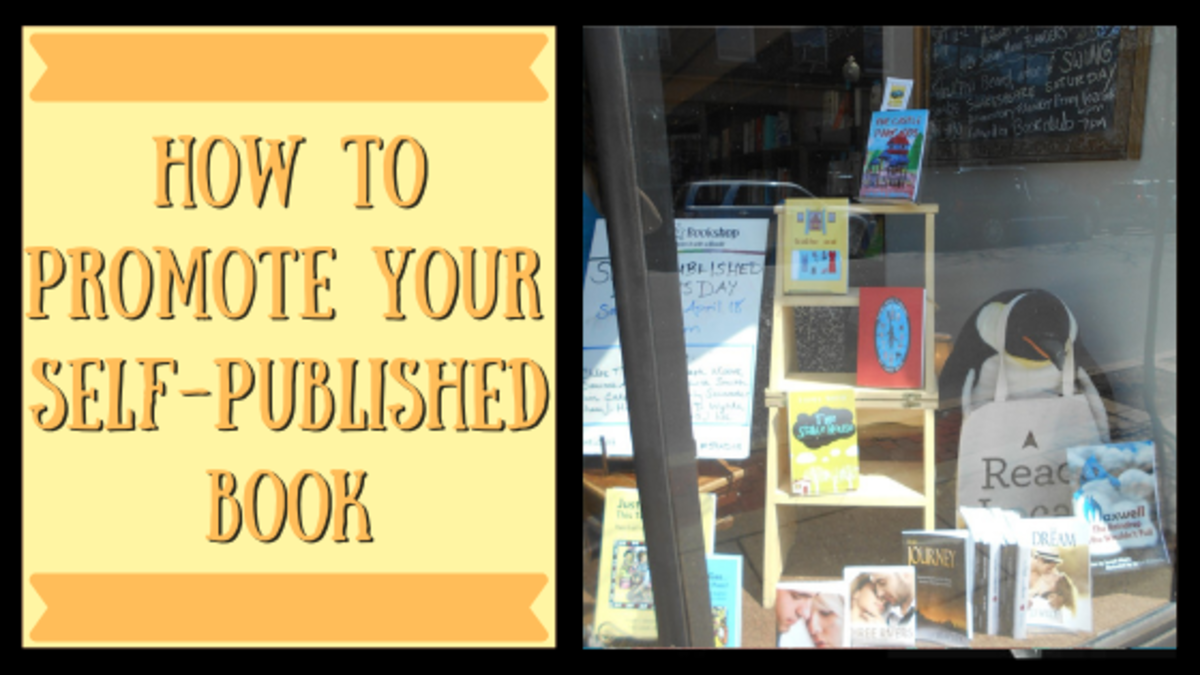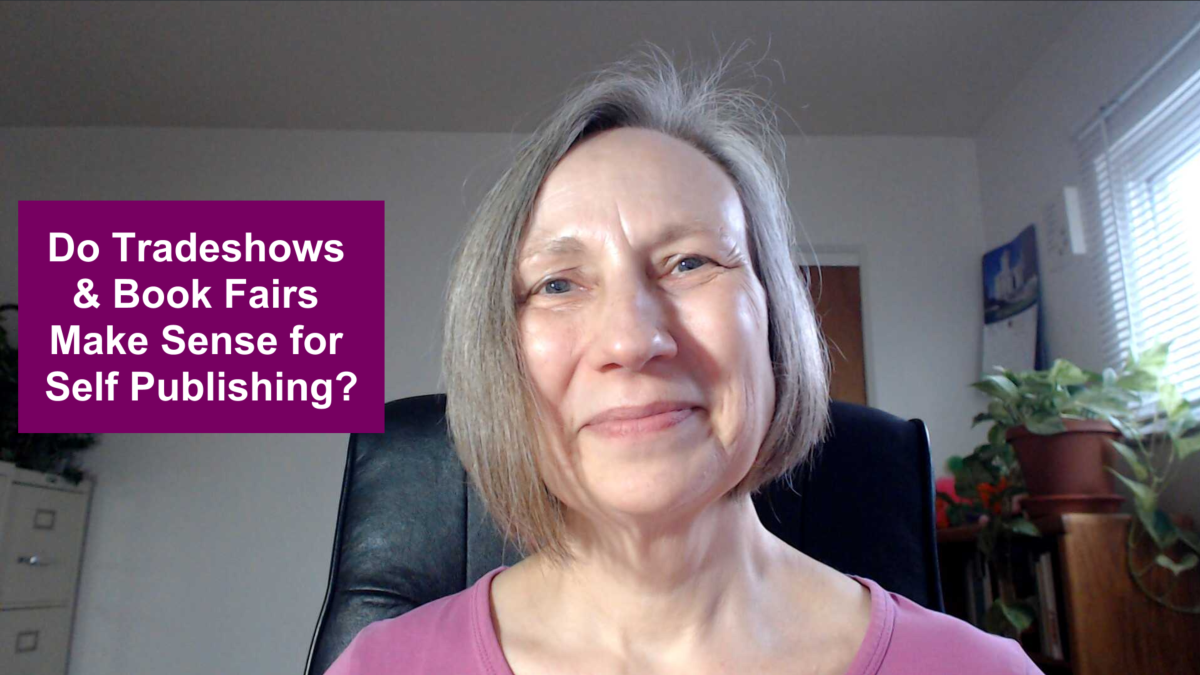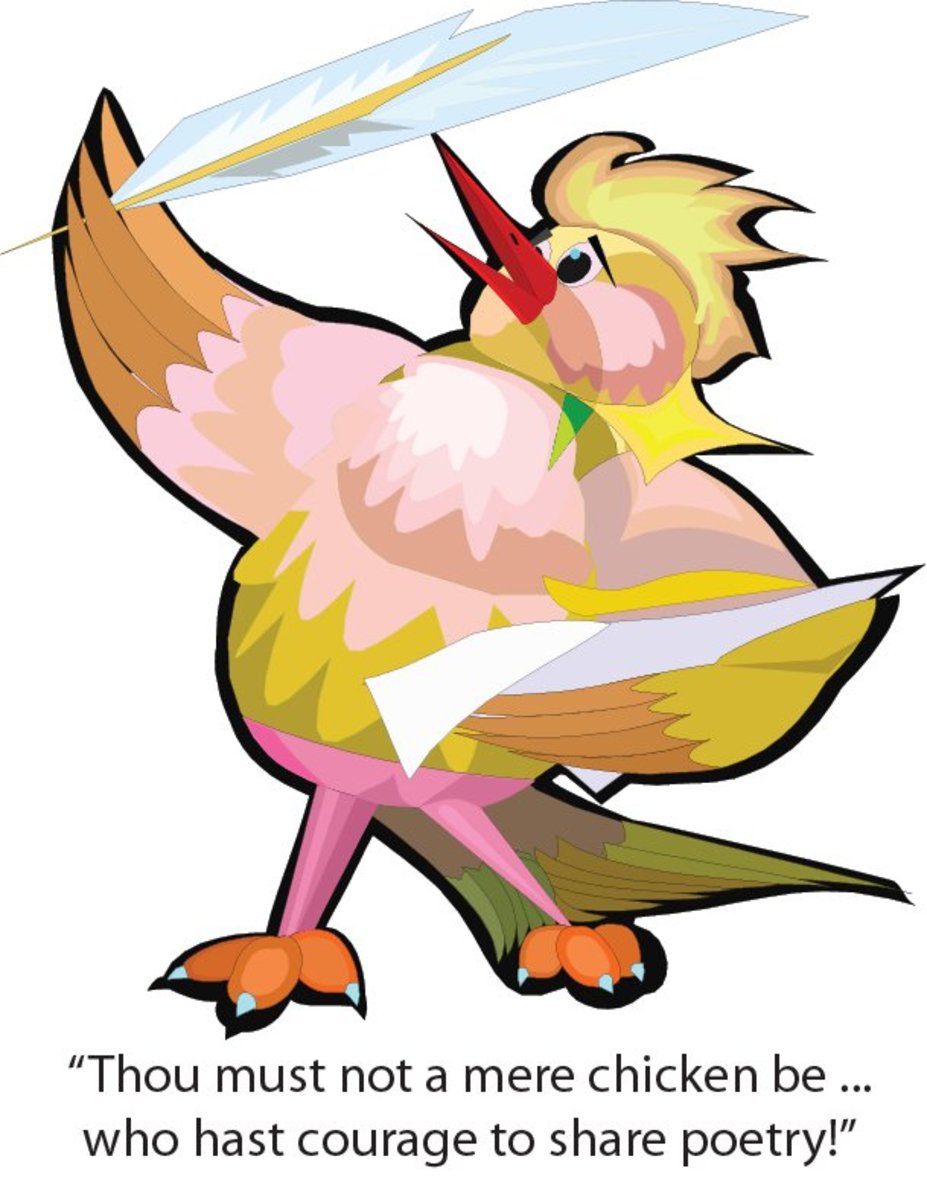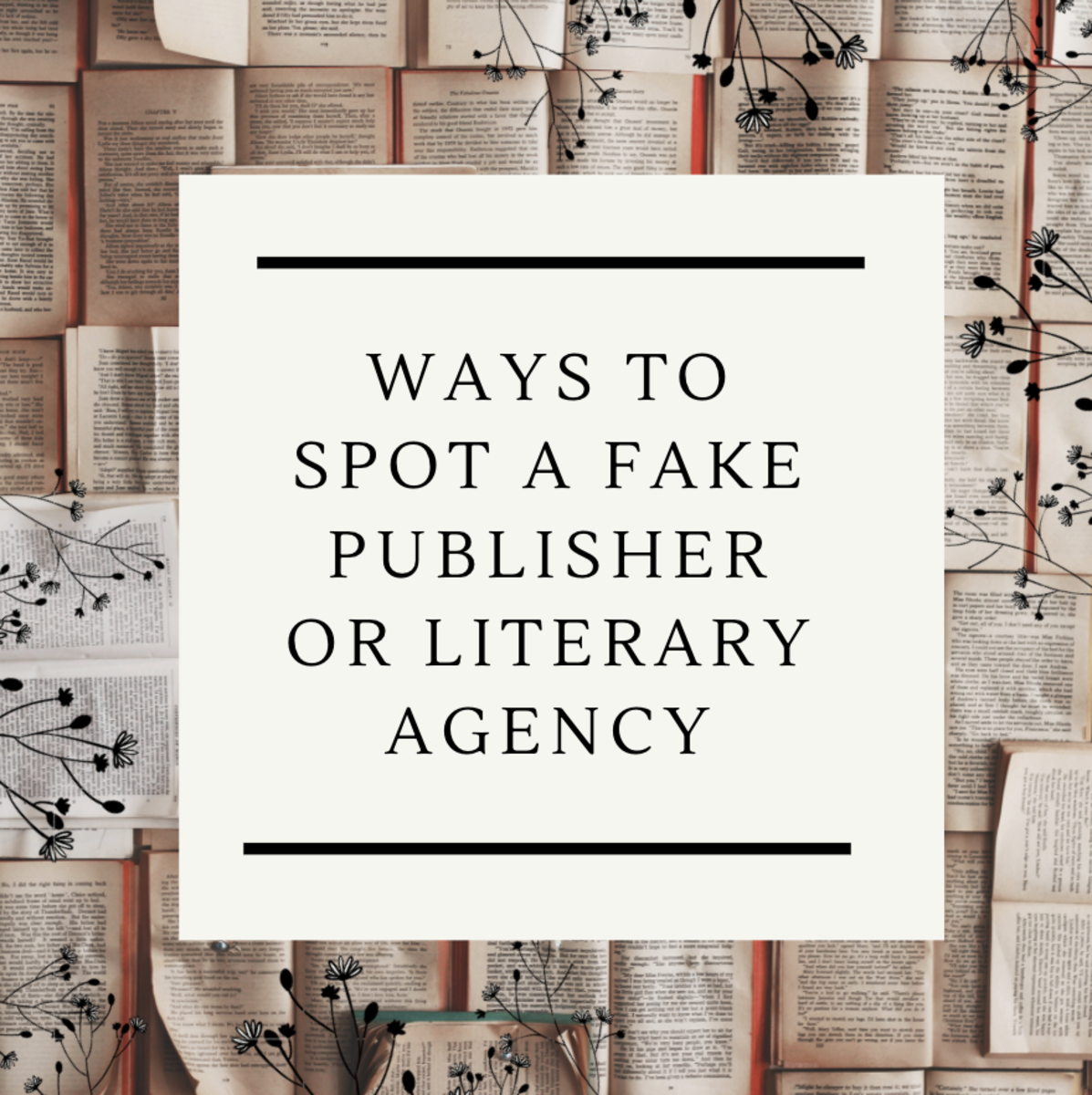- HubPages»
- Books, Literature, and Writing»
- How to Write»
- How to Get Published
Self Publishing Guide - Top Ten Tips to Remember

Congratulations!
Well done! You have finally completed your masterpiece! Now what?
The first step you should take is to find a good editor - one who can make the necessary corrections and adjustments while keeping the integrity of your book intact. Once you have survived the often times, lengthy process, you need to figure out what you want to do with the end result.
"Why, publish it, of course!" you say. Ah...that, I'm afraid, is easier said than done; unless, of course, you choose to publish your work online. While this choice may garner page views and possibly some adsense revenue, it is hardly what you, as an aspiring author, have been hoping for.
Every author dreams of royalty cheques, recognition and best seller's lists. They may not admit it, but trust me, those hopes and dreams are what drive them to keep going.

What's next?
Now that you have decided to publish your manuscript you need to know what choices you have, and what resources you can use to accomplish your goal.
The two major choices for publishing are submitting your manuscript to book publishers and self publishing. Both venues are chock full of companies offering the best quality, prices, customer support, and marketing for your book.
So how do you know which choice to make?
Ultimately, that choice depends on your needs and present circumstances. Not everyone has the same resources available to them, for whatever reason. My lack of resources centered around money. Being a single parent with a behaviourally challenged child considerably reduced the amount of funding available to me to publish and promote my books. So, I decided to try submitting my manuscripts to publishing houses.
Editing Services
- Professional Editing Services
- Red Pencil Editing Services. Professional - Reliable - Meticulous. Abbotsford,Bc Red Pencil Editing
We are your source for meticulous editing, proofreading, resume preparation, technical writing, and more.
Research your options
I soon discovered what I'm sure most aspiring authors have found. The majority of publishing houses either do not accept manuscript submissions, either through the mail, or online, or, will accept submissions only through a literary agency.
Literary Agents - Do You Need One?
Clearly, if I wanted to pursue a publishing contract, my next step was to procure a literary agency willing to take on new clientele. After weeding through hundreds of possibilities, a daunting task I might add, I settled on what seemed at the time, to be the best choice.
Make sure your work is well edited, and supply a critique.
A critique is used to show your work is print ready, and as a final proofing stage to correct any possible weaknesses in the manuscript.
After consulting with an adviser, I was informed that before anything could be done, I needed to submit a critique of my work, of course, following their stringent guidelines, which I did. From there, after my submissions were examined and proven to meet their standards, I was to send a copy of my manuscript, and would then be assigned a literary agent to promote my work at up coming book fairs across the country and in Europe.
A time consuming process
All of these individual steps take time, and it can be very frustrating for an author. After what seems like the hardest step of all, actually writing and finishing your book, you discover that in fact, that was the easiest! The hard part is finding someone willing to edit, critique, publish and promote your book.
I had succeeded in finding a great editor and having my work critiqued. I thought I had finally arrived when the literary agency accepted me as a client. However, the work didn't stop there.
Self Promotion
I was encouraged to build a website, through them of course, for an additional charge. Being that I couldn't afford the additional charges, I opted not to build it. I was assured that my decision wouldn't influence the outcome of my manuscript, and was offered only as a means to bring higher visibility to my work.
I settled in to wait for the results of my literary agent's work. I was assured that my book would be promoted to publishers at all the major book fairs, and being that the company did not get paid until I did, they would be working very hard to sell my book.
Make sure you understand the terms of your agreement with the agency.
The agency's cost for promoting my work was a mere ten to fifteen percent of the contract issued by a publisher, an amount that seemed very reasonable, and is standard within the industry. Any more than that, or, if the company policy calls for any money up front, you are not dealing with a very trustworthy or quality agency.

Time for a change
How long should you wait for results?
After being reassured that my agent would be staying in touch with me on a regular basis, through email and phone calls, I reluctantly handed over the reins and let them do their job. As promised, I received monthly emails, informing me of their progress. However, when I received the third one telling me exactly the same thing the first two had, I decided to get in touch with the agency.
I was assured that this was normal in the field of promoting. Many publishers are looking for specific books, and if yours doesn't fall into their category, there isn't much an agent can do to get the publisher's interest. I was also informed that publishing companies don't take on very many new projects - meaning that book buying is a very slow, and sometimes painful process.
After leaving my manuscript in the agency's hands for a period of time well past our contract date, which was slightly over a year, I decided that this process was taking altogether too much time. At this rate I would be retired before my book was published! I also learned some other facts along the way.
Any royalty returns from a traditional publisher can be as little as five to ten percent, and you might not receive anything until after one or two years! They also keep all the television and movie rights to your manuscript. It can be very exciting to have a large retailer carry your book, but before you sign anything, read the fine print! Extra charges for shipping, insurance, or book returns are a few things to watch for. Your royalty cheques may be few and far between!
So I started researching the alternative - self publishing.
Money is definitely an issue
As I mentioned earlier, I did not, and still don't, have strong financial resources at my fingertips. I know that many struggling authors are in similar circumstances, so my situation is not exclusive to me alone. For this reason, I have included a link to one of the most popular, reasonable on-demand self publishing companies, and the one that I chose, after several months of research.
Timing, Control and Profit
If your book is 'timely', meaning the subject of your book is something important, necessary, or news worthy then why wait. Traditional publishing, as I have mentioned, can take well over a year.
As a self publishing author, you retain full control over your manuscript, as well as any television or movie rights. You can also maximize the return on your investment, both in time and money instead of a mere ten to fifteen percent.
Make your manuscript 'Print Ready'
This step can be rather frustrating if you are unfamiliar with your word processing program. MS Word does have a feature that allows you to format your book into whatever size you choose, the most popular being 5 x 8" and 6 x 9". Once you have formatted your manuscript, you need to save it as a PDF and upload it. If you are experiencing difficulties with this step, the self publishing company can help you with it.
I discovered during my research, that the majority of self publishing companies offer several different publishing options, depending on your financial situation, and the amount of copies you want. Obviously, the more books you buy, the cheaper it is to print them. This step requires an up front purchase, after which, it is up to the author/buyer to market and sell the books.
Which leads me to the next step in this process...
Self Publishing Resources
- Self Publishing - Lulu.com
Lulu.com lets you publish and sell print-on-demand books and e-books, online music and images, custom calendars and books. Free self-publishing. - Self Book Publishing - Print On Demand & Book Binding services for authors - First Choice Books
First Choice Books specializes in Self Publishing and Book Binding services for authors, graphic designers, photographers - iUniverse - Self Publishing Company | Book Publishers
Marketing and promotion
Promote yourself
For a fee, the self publishing company that you have chosen to work with will happily provide you with 'X' number of copies of your book, promotional material, and press releases to help market your book. It is also suggested that you begin promoting it, and yourself, through social websites such as Facebook, Diggit, MySpace, etc.
But what about the authors who can't afford to pay for this service? As I happen to fall into that category, I can tell you there are quite a few free, if time consuming, resources available. One resource, and the first one I chose, is social networking. Out of all the sites, I decided on HubPages as the platform for promoting my work. (Just a little advertising plug...)
Make some promotional material to give to book buyers, libraries, book stores etc.I made 'books', (a copy of the book cover,) gathered testimonials and wrote press releases. I was interviewed online by a fellow hubber, Robert Kelleher, and my next step was to contact radio stations and local newspapers to see if they would be interested in doing an interview. That was where I hit a snag. I needed to order copies of my book for these people to read.
Location matters!
Whereas the self publishing company I chose had excellent prices, allowed for single and multiple orders, supplied a customizable storefront to sell my books and produced beautifully bound colour copies, there was one set back. It was an American company and the shipping costs to Canada, which are computed by weight, completely ate up any profit I would make on the books I sold in Canada.
So in order for me to utilize any Canadian non-profit organizations or charities, I need to locate a Canadian company as reasonable as the American counterpart, which is easier said than done. While we do have many self publishing companies in my province and across the country, as of yet I haven't found one that offers single copy print on demand for a reasonable price, however, I am continuing my research.
Make your book visible!
In order to better promote sales, both here and in the United States, I have built a website for authors to post links to their work, review other author's books, and promote themselves, in the hope that the greater the number of people participate, the higher ranking the site and the better the chances of sales - for everyone involved.
Final notes
One thing I can't stress enough is to research. (Which is why I am repeating this.) Make sure the company you choose can offer you the best monitary deal, print on demand, promotion, (if you opt to have the company do this for you,) marketing and visibility.
The real work begins after your book is printed.
You might think that once your book is finally approved and printed, everything is done, but you would be wrong. Everything you have done up to this point has, of course, been necessary, but it is what you do from this point on that will make the difference between being an author and being a paid author.
I made the mistake of letting the list of publishing companies and literary agencies overwhelm me, instead of making the necessary time available to research the companies properly. After more than a year of waiting, I finally decided to take matters into my own hands and publish my books myself. I don't regret my decision - it was a very proud moment to see my work in print, and know that I was the one responsible.
I also know that I am responsible for promoting and marketing my work, and I am doing just that. It might be taking a bit longer than it could, due to financial challenges, but I'm confident I will succeed, and so will you if you take the time to follow these directions.
Just know that it won't happen overnight, and that all your hard work and effort will pay off. On that note, I would like to invite you to at least take a look at some of the websites available for promoting your work, Lulu.com, and AuthorHouse.com, are two of the best, and I have recently built my own site to help authors get more attention, The Koffee Klatch.
If there was one piece of advice I could offer to new author's starting out on this amazing and sometimes frustrating ride, it would be to not give up! Don't let anyone tell you that you can't do it - because you can!








